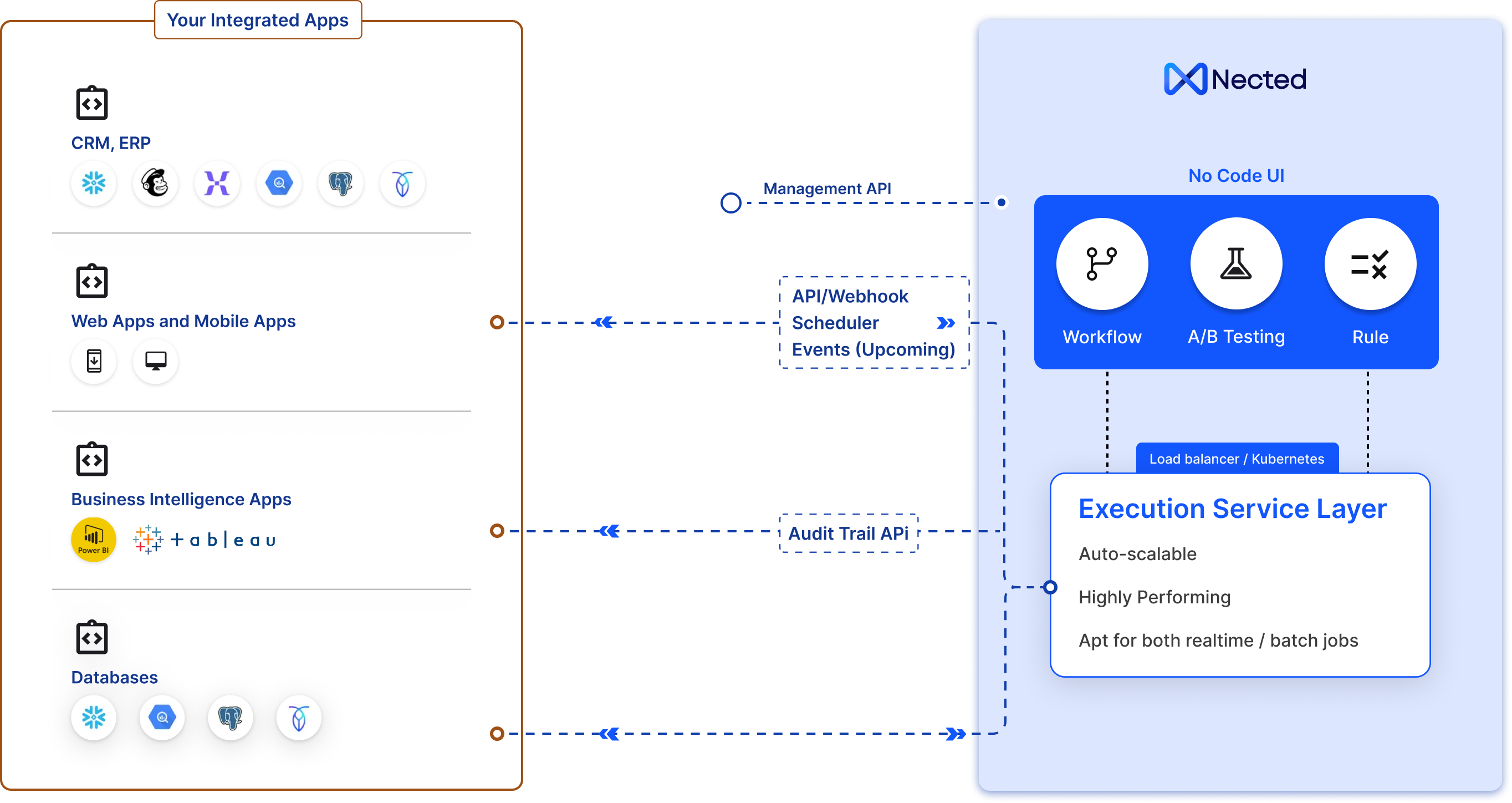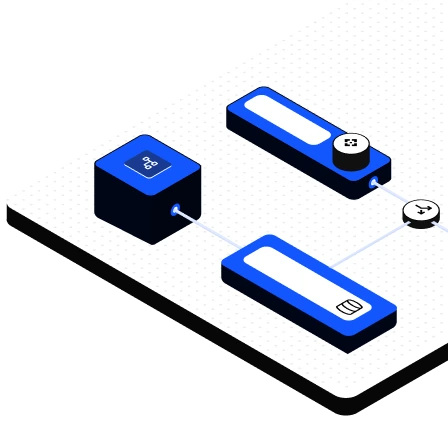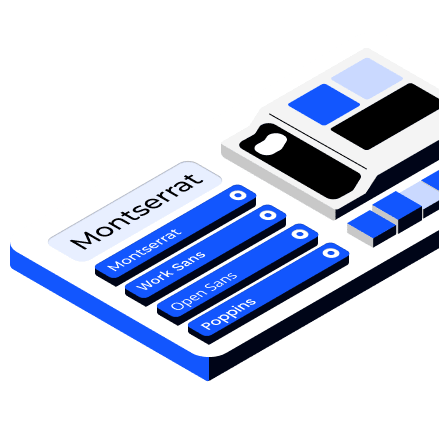
Engineering bottlenecks delay launches and inflate costs—every code release risks user-facing regressions and revenue loss.

Marketing and product teams lack unified tools to target experiments across web, mobile, and backend services—results are inconsistent.
.webp)
Inadequate testing and no pre-launch simulation create unplanned errors and poor user experience when features go live.
.webp)
Teams can’t correlate flag changes with business KPIs or perform real-time analytics to validate experiments.

Lack of instant rollback or automatic KPI-based revert increases exposure to outages and user churn during failed launches.

Every small change requires developer intervention, blocking fast experiments and personalized rollouts.

Business teams can create complex targeting rules with drag-and-drop logic, branching, and conditional expressions—no engineering cycles.

Pre-built SDKs, edge evaluation, and REST APIs for immediate integration with web, mobile, backend, CDNs, analytics, and CDPs—deploy without pipeline changes.

Use real-time segments and CRM attributes to expose features only to high-value cohorts—drive conversion without extra engineering work.

Tie rollout rules to KPIs (errors, conversion, latency) and auto-revert when thresholds breach to eliminate manual firefighting.
.webp)

Seamlessly integrate with any system using simple API-based connectors. No need for complex configurations—connect databases, third-party services, and internal tools with just a few clicks.
.webp)
Leverage a powerful rule engine with multiple rule types, including Simple Rules, Decision Tables, Decision Trees, Rule Sets, and Rule Chains to handle complex logic effortlessly.
.webp)
Automate workflows with Action, Rule, Workflow, Code, Database, and REST API Nodes, while Loop, Delay, and Switch Block manage execution.

Efficiently oversee the entire rule and workflow lifecycle with built-in versioning, rollback capabilities, and staging environments, ensuring seamless transitions from testing to production without disruptions.
.webp)
Deploy Nected anywhere—choose multi-region cloud hosting for high availability or self-host on your infrastructure for complete control and compliance.

Gain full visibility into your decision rules and workflows with audit trails features, and real-time dashboards. Stay compliant and track every change with ease.

Deliver a fully white-labeled experience with embedded user functionality. Use Nected as your own branded decision engine.

Operate with confidence using enterprise-level security, role-based access control, and scalable infrastructure that ensures data integrity and performance even at scale.

Deploy intelligent AI Agents to automate document extraction, text classification, data enrichment, or any other domain-specific task. Build your own agents or plug in pre-trained ones directly into your workflows.

Integrate APIs, databases, and AI models like OpenAI or Vertex in minutes—no coding, just simple drag-and-drop setup.

Nected delivers complete parity with enterprise rule engines like Pega and DecisionRules—plus product-first ergonomics. You get low-code visual flag rules, real-time API evaluation, multi-channel targeting, and audit/version control. Unlike legacy platforms, Nected pairs drag‑and‑drop rule authoring with built-in workflow orchestration, instant rollback, and campaign-level analytics — enabling business teams to run safe rollouts without developer support.
Most customers configure their first feature flag and target segment in under 15 minutes and run production canaries within 24 hours. Pre-built SDKs and REST APIs enable immediate integration; business users can author, simulate, and deploy flags without a code release.
Yes. Nected’s evaluation layer supports millions of evaluations per second with sub-10ms decision time for global edge deployments. Scale testing has validated steady behaviour at 100,000+ decisions/minute with consistent SLA-backed uptime.
Nected includes versioned flag sets, audit trails, role-based approvals, and immutable change logs to meet security and compliance requirements. You can simulate impact, run pre-launch canaries, and use automatic rollback rules tied to business KPIs to limit risk.
Nected provides production-ready SDKs for JavaScript, iOS, Android, Java, Python, and Node.js, plus webhooks and server-side REST APIs for instant connection to CDNs, mobile apps, and backend services. Out-of-the-box connectors for analytics, CRM, and feature telemetry enable closed-loop experiments.
Invocations refer to the number of times your workflows/rule is triggered via API, cron or other trigger. It will count the parent rule/workflow and can have as many rules, nodes within it. This metric is often used for billing purposes. Compared to other products, invocations as a billing metric can be more cost-effective and transparent, aligning closely with your actual usage and needs. It ensures you pay for the value you receive, rather than flat rates or less relevant metrics.
If you exceed, you'll be charged based on additional usage and will be added in your monthly charge. In case of payment failure after grace period, your plan will be reverted to free trial limiting your monthly execution and # of rules/flows as per free plan, however all your existing rules/workflow data would be kept intact.
Firstly, we do not have a vendor lock-in, so you can cancel anytime you want. However, if you decide to cancel once your subscription for a given period has started then you would be able to cancel at the time of the next billing cycle only.
Yes, you can typically upgrade your Nected plan at any point during your billing cycle. The upgrade process is usually straightforward, often involving just a few clicks in your account settings. Upgrading mid-cycle may involve prorated charges for the higher-tier service.
The best plan depends on your specific needs, such as the expected number of invocations, the complexity of your workflows, and the level of support you require. It’s a good idea to start with a basic plan and upgrade as your needs evolve, especially if you're new to Nected. Moreover, you can also write to us at assist@nected.ai and we will help you figure out the best plan for your brand.
Yes, Nected usually offers assistance in setting up and creating a Proof of Concept (POC), especially under certain plans. This assistance can include access to customer support, documentation, and possibly dedicated account management.
The Startup and Growth plans typically provide basic to enhanced support, including access to customer service through email or chat, a knowledge base, and possibly community forums. Response times and the extent of personalized assistance may vary between these plans.
The on-premise plan generally offers the most comprehensive support, including dedicated account managers, 24/7 support, and tailored assistance for deployment, maintenance, and troubleshooting. This plan is best suited for businesses with extensive, mission-critical use of Nected.